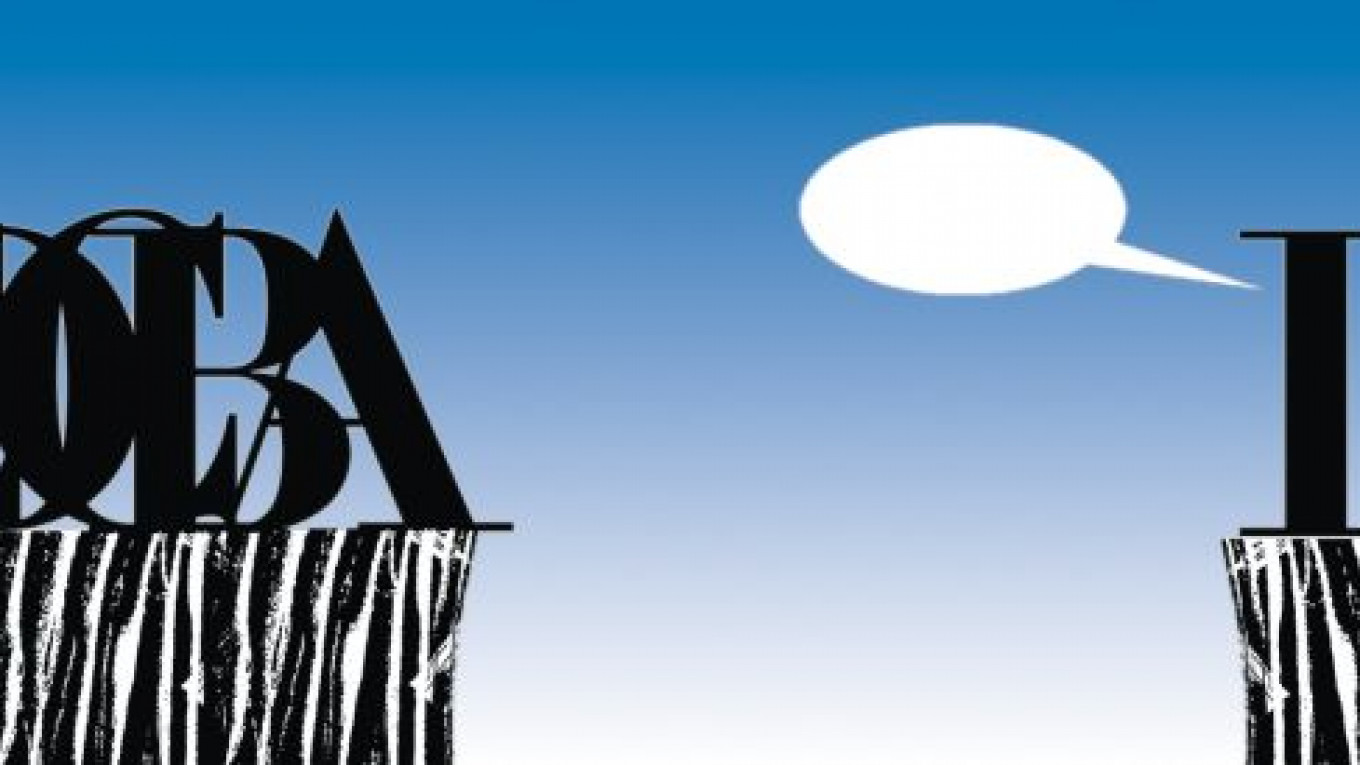The European Union's most important decision this fall will be whether to sign an association agreement with Ukraine at the EU summit in Vilnius Nov. 28 -29. The issue will turn on whether Ukrainian President Viktor Yanukovych fulfills one vital condition: a full pardon for political prisoner and former Prime Minister Yulia Tymoshenko.
The association agreement, which runs to some 1,200 pages, would remove almost all EU tariffs on Ukrainian goods, boosting the country's long-term gross domestic product by an estimated 12 percent. It would also establish a political, economic and legal reform plan for the country, supported by about 60 state agencies in EU member countries.
Far from being a one-off case, the Tymoshenko affair exposes a deeper malaise.
Although the association agreement does not lead automatically to EU membership, it is an important step in that direction. Under the Treaty of Rome, Ukraine, as a European country, qualifies as a potential EU member. But it would have to fulfill the EU's "Copenhagen criteria," established in 1993, which set out the basic entry standards.
The Copenhagen criteria are met when the candidate country has achieved "stability of institutions guaranteeing democracy, the rule of law, human rights, and respect for, and protection of, minorities"; can ensure the existence of "a functioning market economy and the capacity to cope with competition and market forces"; and has sufficient "administrative and institutional capacity" to adopt and enforce EU law and "take on the obligations of membership." Ukraine is a long way from achieving this, but signing an association agreement would pave the way toward entry talks, while also creating tremendous economic opportunities.
Ukraine's alternative would be to join a Russian-dominated Customs Union that includes Belarus and Kazakhstan. Membership would require Ukraine to double import tariffs on EU goods, at an annual cost equivalent to 4 percent of GDP, and it would not even guarantee free trade among its members. Russia already applies trade sanctions against Belarus and Kazakhstan. The Customs Union thus appears to be little more than a Russian neo-?imperialist venture.
Unsurprisingly, Yanukovych has consistently stated his preference for an association agreement. His political future may depend on it. His advisers and recent opinion polls suggest that if he fails to sign a deal, he will lose the March 2015 presidential election.
The electoral math is stark. While 40 percent of Ukrainians, based mainly in Yanukovych's electoral heartland in the east and south of the country, would prefer to join the Customs Union, 60 percent of voters see their future with or in the EU. Even allowing for widespread electoral fraud, which would hardly endear him to Brussels, Yanukovych would still struggle to win a majority.
It is not just the swing vote that Yanukovych needs to attract. Ukraine's powerful oligarchs are also looking west rather than east for business. Many are fed up with the arbitrary imposition of trade barriers — affecting goods ranging from chocolate to steel pipes — in their former Soviet markets. EU markets, by contrast, are viewed as being not only bigger but safer as well.
Meddling from Moscow has certainly focused minds in Kiev. Russia's brief trade war in August frightened Yanukovych into pledging to fulfill all 11 of the EU's legal and political conditions. These require Ukraine to overhaul its judiciary and law enforcement and ensure greater adherence to democratic norms. The parliament is considering 15 bills along these lines, all of which have the full support of the main opposition parties.
But the EU's demand that Yanukovych pardon Tymoshenko, who narrowly lost the 2010 presidential election, may prove harder to satisfy. Tymoshenko was arrested in August 2011 and, after what was widely seen as a show trial, received a seven-year prison sentence for "abuse of power" involving a 2009 natural-gas deal with Russia, although she was not accused of benefiting personally.
An EU-appointed mediation commission that includes former Polish President Alexander Kwasniewski and former European Parliament President Pat Cox has proposed a solution. At the commission's request, Yanukovych would pardon Tymoshenko, who would be allowed to travel to Germany for medical reasons.
Tymoshenko has accepted the deal but Yanukovych has not. Rather than a pardon, he wants parliament to pass a law allowing Tymoshenko to go to Germany for treatment but only on the condition that she would resume her prison sentence should she return to Ukraine.
The EU says that those terms are unacceptable. Acquiescing in Tymoshenko's political imprisonment would negate the very foundations of the legal and democratic standards that the EU purports to represent. Any subsequent legal reform in Ukraine would appear hollow.
Some argue that the EU should ease its conditions. The case of a single, albeit important, individual should not stand in the way of Ukraine's future. But far from this being a one-off case, the Tymoshenko affair exposes a deeper malaise. Even now, Yanukovych is trying to amend tax rules to disqualify the popular Vitaly Klitschko, a champion boxer and former German resident, from running for president in 2015. The corruption and lawlessness that characterizes Yanukovych's rule should spur the EU to hold fast to the letter and spirit of its conditions.
Time is not on Yanukovych's side. The European Council of Ministers will make its final decision Nov. 18. If Yanukovych has not amnestied Tymoshenko by then, the EU can wait for a new Ukrainian president who will be more committed to upholding EU values, as the Polish member of European parliament Jacek Saryusz-Wolski suggested. Yanukovych will be the one blocking Ukraine's path to the future.
Anders Åslund is a senior fellow at the Peterson Institute for International Economics. © Project Syndicate.


